Sumaira Abdulali: An eco-activist who is now known as the Noise Minister of India
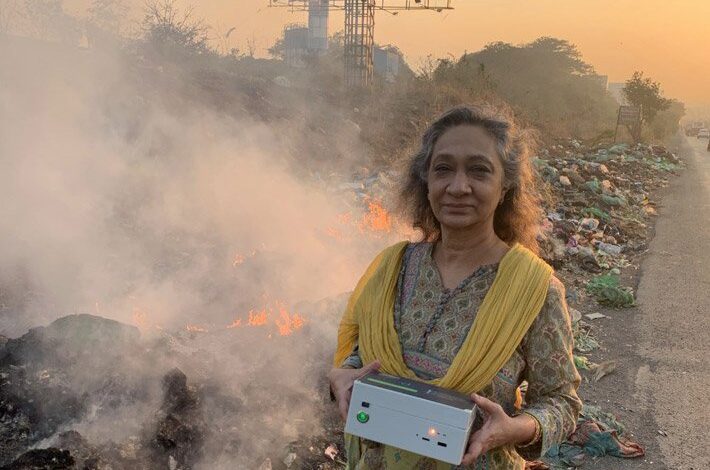
In case you are wondering how much noise is too much noise? Sumaira Abdulali is the one person who can tell you exactly how much! How? Well, she is the lady who always has an audiometer with her and has taught the entire nation exactly how much noise is too much. After reading this article, I hope you think twice before blaring your loudspeakers and start spreading awareness about noise pollution being a serious health hazard, just like Sumaira did!
Sumaira Abdulali is an activist and an environmentalist who has always been several steps ahead of her time. She is the queen of firsts as she was the first one to raise her voice against so-called ‘benign’ environmental issues like sand and noise which were not even considered health hazards until she decided to do something about them. She was often mocked for raising awareness about such issues and her ideas were called elitist. Nobody really understood or cared that something as simple as the noise could be affecting their health and the environment in the long run.
I was mocked for taking up noise and sand as environmental issues. People often asked me out of everything that is wrong with the world, why are you bothering about sand and noise?
An Early Start
Sumaira comes from a simple family that resides in Bombay. She never imagined her life would take her on such an adventurous journey as she wanted to lead a simple life taking care of her kids and family. The activist in Sumaira woke up when she got a blocked road cleared in her childhood village. She soon joined her uncle Saad Ali, the then Chairman of Bombay Environmental Action Group (BEAG), who was leading a cause against loud noise. She volunteered to do some clerical work for him. He was working on noise pollution at the time. She wanted to work in an office as field work proved to be too taxing for her and she didn’t want to spend too much time away from her kids. However, her life had something unimaginable in store for her.
Soon after she joined, the government of Bombay came up with a notification allowing speakers to be played till midnight for 15 days a year. Her uncle wanted to file public interest litigation regarding this issue and Sumaira helped with the paperwork. Due to his old age, she was also entrusted with the responsibility of getting the petition signed, which she did. This was how her journey started in public interest litigation on noise.
In the year 2003, after various efforts, the Bombay High court for the first time identified areas like schools, hospitals, etc as silent zones and ordered the ban of loudspeakers within 100 meters of these areas. Although these were court orders, it is not as easy getting the orders implemented. People who were getting affected due to high noise levels still didn’t know what to do and where to complain as noise pollution wasn’t considered a health hazard or taken seriously by the masses.
On the advice of the lawyer who does pro bono work for her since the beginning, she gave her number to the 1st journalist she ever met outside the Bombay high court. Due to this step, people had an outlet and someone who heard their complaints.
My phone hasn’t stopped ringing 20 years later
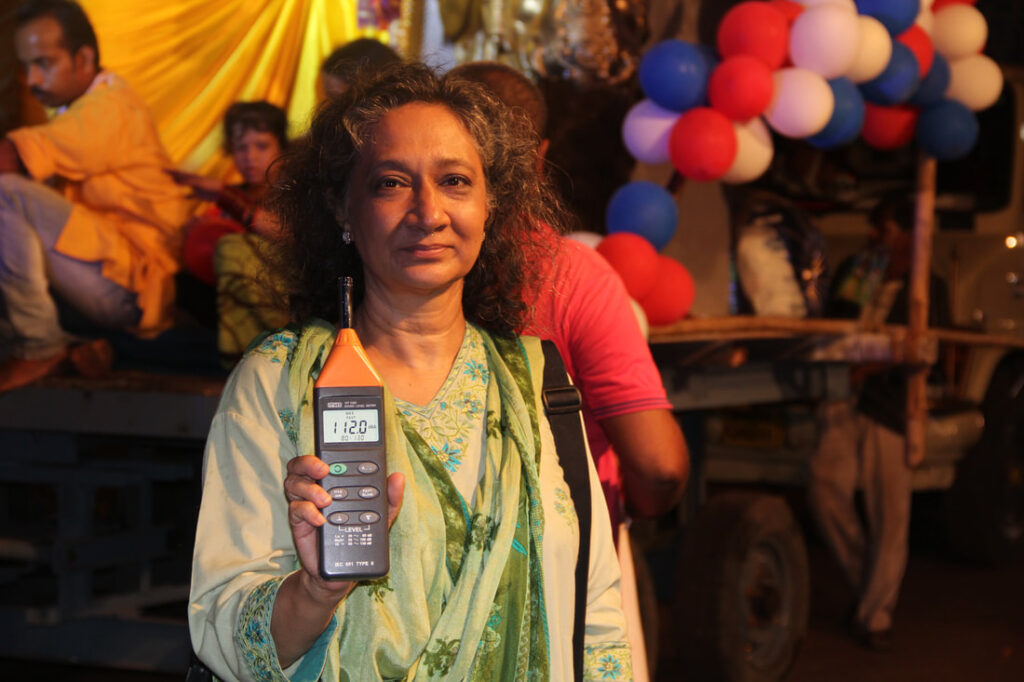
Government Policy Changes
In the year 2006, she filed another PIL on different types of noise like firecrackers, construction, etc. She had received numerous complaints and insisted on the need for integrating different types of noise into urban planning. Before filing the PIL, Sumaira opened an NGO and trust called Awaaz Foundation and carried out numerous campaigns with the help of this organization.
Sumaira In the year 2009-10, serious orders against noise were passed on various aspects. Shivaji Park which is an extremely important place politically was declared a silent zone by the Mumbai High Court.
Sumaira was called out by Shivsena leader Bal Thackeray saying, ” Awaazchi bai sitting there can’t control the tigers”
Although the orders didn’t exempt anyone from the rules, the rallies still continued but they did reduce their noise levels even though they failed to meet the guidelines.
Sumaira stood undeterred and continued measuring these noises. She started partnering with police to measure the noise from traffic, firecrackers, construction, etc., and formed many partnerships across Maharashtra and India.
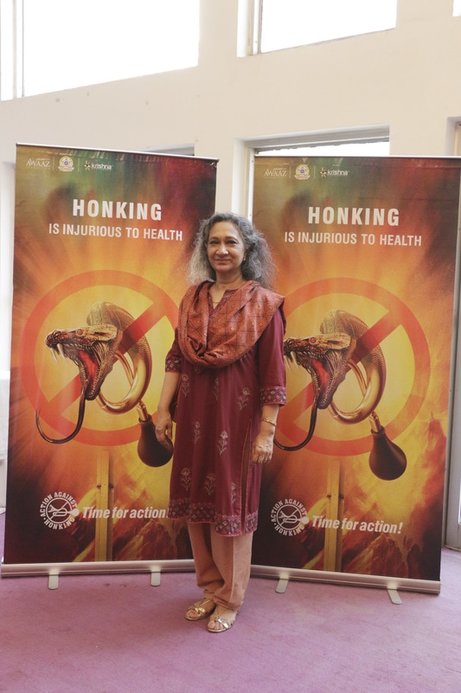
As a result of all the meticulous and litigious efforts, new noise rules in 2013 were passed in which noise pollution from traffic and construction was also added for the first time. The PILs filed in 2003 and 2006 were clubbed and heard extensively by the court in 2015-16. In the year 2016, the court passed a detailed, 100+ page order, detailing all the guidelines on how to complain, the roles of different authorities, what kind of action to be taken, and much more to battle the issue of noise pollution. The police were receiving a lot of calls and complaints making noise pollution the second-highest crime recorded in the state of Maharashtra.
Even slum dwellers were complaining about high noise levels as they didn’t have doors and windows to shut. Sumaira’s fight against noise pollution was once called an elitist issue. This proved that it is far for elitist and is a severe health issue.
The compliance of the order was heard till 2 years after these rules have been passed. Unfortunately, rules were changed again by the Govt. of India saying that silent zones would only exist if they are notified and identified by State Gov.t individually. This order nullified all the 2000-2500 silent zones in Maharashtra in a single go. It was a huge blow to her movement and campaign.
The Aftermath
Although new Government policies took Sumaira’s campaign many steps back, she did make a significant impact on the masses. She didn’t give up for even a second and she felt that all her efforts made the public aware and noise pollution received the status of crime. It is a matter of behavioral change in the long run and policies are crutches to support the movement. She received positive feedback from the public. The president of Ganpati Mandal associations who was a violator told Sumaira that he understood the importance of protecting their people from noise.
This is about societal change. I still receive calls everyday even after all the systems are in place
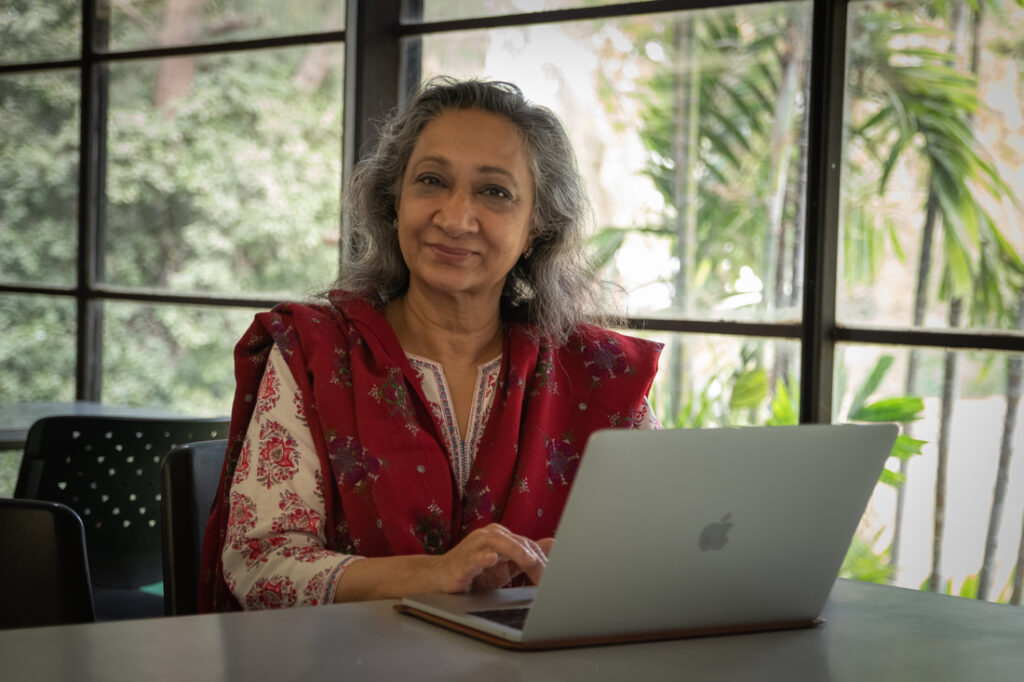
Sensitive places like religious establishments and political rallies are still not being monitored and intervened by police. These sensitive areas and event organizers are being mindful as they have reduced their timings and no. of days significantly. Religious places are also not exempted but the police don’t take action and they continue till 4:00-5:00 a.m. in the morning. Even in the absence of police monitoring, people have come together and the biggest trusts in Mumbai are working towards finding alternatives to loudspeakers.
Loudspeakers are a 100-year-old technology and we have advanced commendably over the years. There are alternatives if we are willing to adapt. Noise pollution doesn’t only affect human beings, it also affects animals gravely. Recent studies have found that it affects the patterns of migratory birds and can raise heart beats of such small organisms as caterpillars.
Talking on a global level, Sumaira says noise is even behind sand in terms of international recognition. It is as late as 2022, that UNEP executive directors made a statement for the first time stating noise pollution to be a serious health hazard second to air pollution across the world and being a driver of climate change.
Moving Ahead
Sumaira has hosted many successful campaigns under the Awaaz foundation by partnering up with the police, medical professionals, press and media companies, social media, and technology. She continues to monitor and measure noise levels around Mumbai and logs her findings. She feels that it is time that the baton was passed on to the younger generations as now they are the drivers of change. The 2020 lockdown did not heal the environment but it the younger generations a chance to experience a clean world for the first time in their lives. She does her part by writing about serious environmental issues, educating the youth via online lectures and visits, and contributing her findings, knowledge, and expertise to various areas of climate change studies. Awareness is the first step and action comes second.
Sumaira feels that being mindful of the environment and the people doesn’t mean stunted growth. She is not against development but she feels it should be done in a smart and eco-friendly way which is possible in today’s world only if we are willing to do the extra work, and adapt. Her family has been her backbone through all the ups and downs in her journey and she has no plans of slowing down.
Sumaira is an eminent Tedx speaker, recipient of the Ashoka Fellowship in 2008, the Mother Teresa Award for Social Justice 2010, and the Green Crusader Olive Crown Award 2015 amongst many other laurels. She is a living example of honest work and determination. She did not begin her journey dreaming about awards and recognition, she simply saw a problem and vowed to fix it!
Image source: Awaaz Foundation




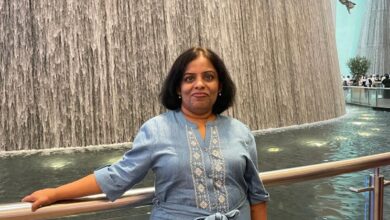
One Comment